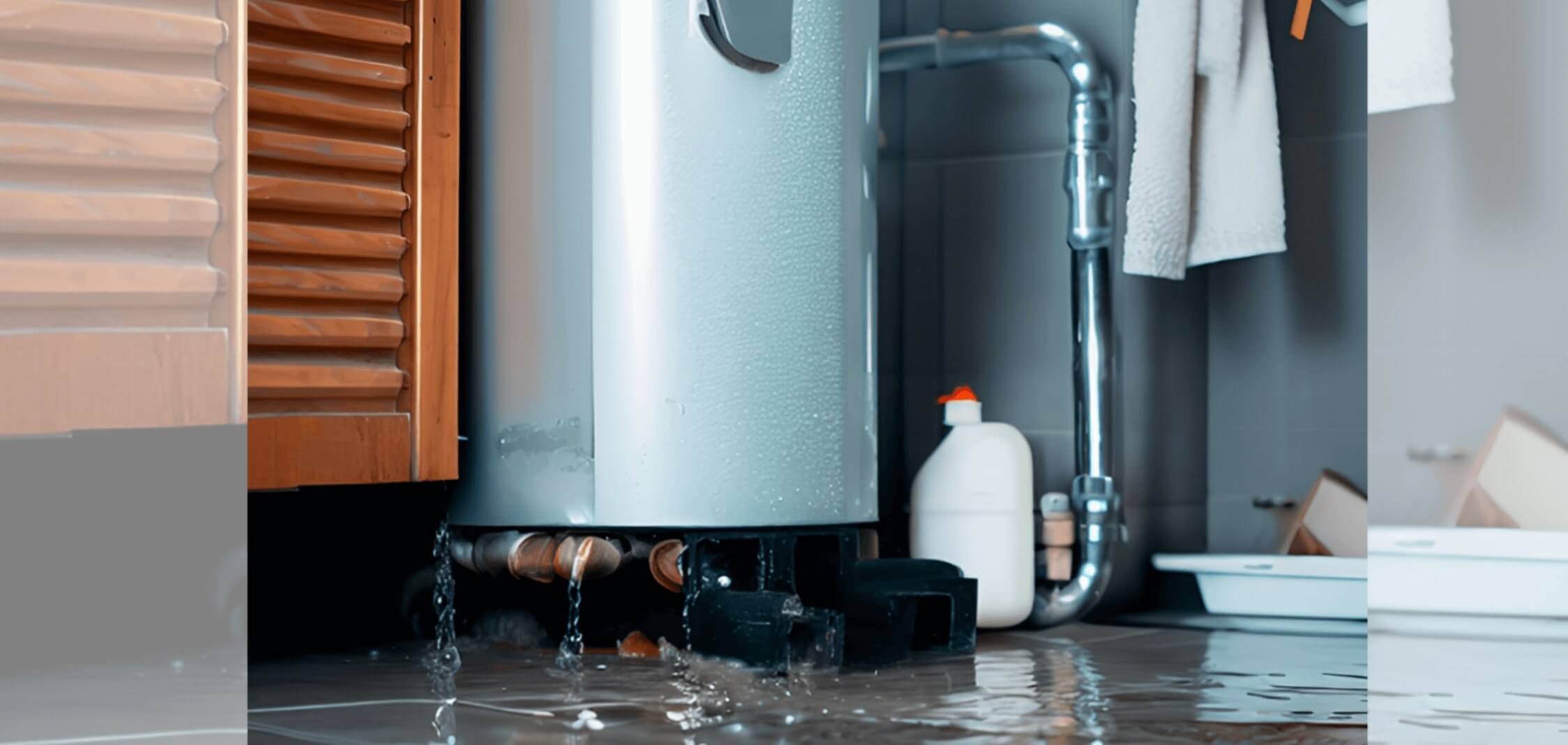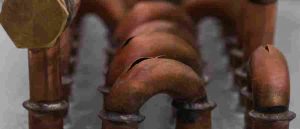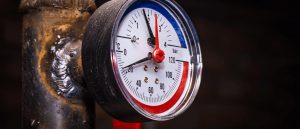Water Heater Leak from Bottom? Here's Why & What to Do
Published Date: May 4, 2023

Discovering a water heater leak from the bottom can be alarming for homeowners. It’s a sign of potential property damage and can disrupt your daily routine.
But fear not! This blog will concisely review the possible explanations for a water heater leak from the bottom, the necessity of resolving this problem immediately, and essential factors to check for. Whether you’re a DIY enthusiast or need professional assistance, we’ve got you covered.
Discover why the water heater leaks from the bottom and how to prevent further damage.
Immediate Steps to Take When Your Water Heater Leaks
A sudden water heater leak can cause significant damage to your home and should be addressed immediately. Here are some tips on what to do in case of a sudden water heater leak:
- Turn off the supply: If your water heater is electrically powered, turn off the electricity to the unit at the circuit breaker. This will help prevent any electrical hazards that may arise from the water damage. Turn off the gas supply in the case of the gas water heater.
-
Turn off the water supply: The next step is to turn off the water supply to the water heater. Locate the shut-off valve on the water supply line and turn it off. Typically, this can be located either in the basement or outside close to the curb. This will stop water flow into the tank, preventing further leakage.
In addition to turning off the main water supply, it’s also essential to turn off the cold water supply for your hot water heater. You can locate two valves on your hot water heater, one for hot water and one for cold. Shutting off the cold water valve will prevent any further water damage from the leak.
- Drain the water heater: Once the water supply is turned off, you should drain the water heater. This will help minimize the water that leaks out of the tank and reduce the risk of damage. To do this, attach a garden hose to the drain valve at the bottom of the water tank and direct the hose to an open suitable location.
- Take safety precautions: While waiting for the plumber to arrive, it is essential to take safety precautions. Avoid touching any electrical appliances that may have come into contact with water, and wear protective clothing to avoid potential health hazards.
Now that your water, gas, or electricity supply is off, it’s time to start troubleshooting!
Identifying the Water Heater Leak Source
Determining where the water comes from is challenging because water heater leaks frequently begin slowly, drip by drip. To feel for moisture, run your fingers or a piece of paper around the following areas:
- Connections of the pipes located above the water heater
- The Temperature and Pressure Relief (TPR) valve (TPR valve is situated on the tank’s side and has a copper tube that should extend outward for a few inches before sloping downward to the floor)
- Bottom of the tube for moisture
- The drain valve near the tank’s base
Causes of Water Heater Leaking from Bottom
Although water heater leaks can have various causes, let’s explore some common factors.
1. Tank corrosion:

Over time, the tank of a water heater can corrode due to exposure to water and minerals. Corrosion can weaken the tank and cause it to develop small holes or cracks, resulting in leaks from the bottom.
2. Sediment buildup:

Water heaters can accumulate sediment at the bottom of the tank, especially in areas with hard water. This sediment can cause rust and create openings for leaks to occur.
3. Loose drain valve

The drain valve at the bottom of the water heater is used for flushing out sediment and performing maintenance tasks.Over time, the valve can become loose, resulting in water leakage. Nonetheless, if there are leaks originating from the valve base, it implies that the component is not waterproof and requires replacement with a new drain valve.
4. Faulty temperature and pressure (T&P) relief valve:

A faulty Temperature and Pressure (T&P) relief valve can cause water heater leaks in a couple of ways. The T&P valve is responsible for releasing excess pressure and temperature build-up within the water heater tank, which helps to prevent the tank from rupturing or exploding.
If the T&P valve becomes faulty, it may fail to release pressure or temperature build-up, which can cause the water heater tank to over-pressurize and eventually leak. Additionally, a malfunctioning T&P valve may continually release water, even when the tank is not experiencing excess pressure or temperature, which can lead to constant dripping and eventually cause water damage or flooding.
5. Tank overheating:

If the water heater’s temperature is set too high, it can cause the tank to overheat, resulting in excessive pressure and eventually leading to leaks.
6. Ageing or deteriorating tank:

Water heaters can simply age or deteriorate over time, especially if not properly maintained. This can result in leaks from the bottom of the tank as the overall integrity of the tank weakens.
Solutions to Fix a Water Heater Leaking from the Bottom
Now that you know the causes of a water heater leaking from the bottom, let’s explore some solutions to fix the issue and prevent further damage.
Temporary fixes to repair a leaking water heater
While it's essential to address the issue promptly, there are some temporary fixes you can do to repair a leaking water heater and get it working again.
- Flush the Tank
The tank must be drained to lower the pressure and stop further leaks. Connect a hose to the water heater's drain valve at the bottom, then attach the other end in a secure area where the water may easily drain, like a floor drain or outside. Open the drain valve and let the water drain from the tank until it is empty. - Seal the Leak
Once the tank has been drained, check the area for leaks. Try temporarily repairing the leak if it comes from a minor hole or cracks with the plumber's tape or sealant. - Tighten Any Loose Connections
Verify the tightness of all connections, including those to the inlet and output pipes and the temperature & pressure relief valve. To tighten any loose connectors, use a wrench or pliers; take care not to overtighten them, as this could result in damage. - Keep an eye out for new leaks After finishing the temporary adjustments, turn on the water heater's power and supply, and watch for any new leaks. Watch the patched area for any indications of water seepage or dripping. If you notice any additional leaks or if the patch is not holding up, it's important to call a professional plumber for further inspection and repair.
Options for replacing the water heater
Every household needs a water heater since it supplies hot water for a variety of uses. However, the water heater can be replaced after a while for a variety of reasons, including aging, damage, and wear and tear. To replace your water heater, you have the following choices:
- Traditional Storage Tank
This is the most common type of water heater that stores a large tank of hot water, ready to use whenever required. These heaters are reasonably priced in comparison to other options and come in a variety of sizes ranging from 20 to 100 gallons. But they might use more energy to keep the water warm, and the tank might take up a lot of room. - Tankless Water Heater
A tankless water heater offers an efficient and space-saving alternative to traditional water heaters. Instead of relying on a storage tank, these heaters heat water on demand, resulting in lower energy costs and freeing up valuable space. Although they are more expensive than storage tank water heaters, their energy efficiency might help you save money over time. These water heaters also take up less space, making them a great option for smaller homes. - Hybrid Water HeaterA hybrid water heater combines the advantages of tankless and storage water heaters. It is more energy-efficient than standard storage tank heaters since it heats the water using a heat pump. These heaters can be set up in compact areas and provide hot water continuously.
- Solar Water HeaterA solar water heater is an environmentally friendly choice that heats water using solar energy. Although they cost more to install than conventional heaters, these heaters can ultimately save you a significant amount on your energy costs. They are a great choice for people who wish to lessen their carbon footprint, too.
- Heat Pump Water HeaterA heat pump water heater is another energy-efficient option that uses electricity to move heat from the air or ground to heat the water. These heaters are more expensive than traditional storage tank heaters but can save you money on your energy bills over time.When selecting a replacement water heater, it's important to consider factors like your budget, available space, and installation concerns.
Call The Professionals
Although temporary fixes are not a long-term solution, they can buy you some time before a professional can properly repair or replace the leaky water heater. Also, water heaters can be dangerous devices, so safety should always come first. Call a professional if you need more clarification or are uncomfortable doing the repairs.
Our Top Picks for Professional Water Heater Contractors
Explore our handpicked selection of the best home warranty companies that cater to the requirements of every household, ensuring reliable coverage for water heater failure.
Appliance Discounts + Amazon Voucher + $50 Off On Multiple Properties Only For AHS Members

American Home Shield
Known For Nationwide Contractors
American Home Shield
Known For Nationwide Contractors
American Home Shield is a well-known name in the industry. The home warranty company protects homeowners against high repair and replacement costs. With a history of over 50 years, American Home Shield has established a reputation for reliable service, comprehensive coverage, and exceptional customer support. Let us look at some of AHS’s standout features:
- Covers unknown pre-existing conditions
- Offers unlimited coverage for systems
- Serves over 2 million homeowners
Covered Parts:
Water heater tank, burner assembly, pilot burner, pilot tubing, Thermostat, heating elements, pressure relief valve and gas valve
Offer - 1st Month Free + Free Roof Coverage

Choice Home Warranty
Known For Comprehensive Coverage
Choice Home Warranty
Known For Comprehensive Coverage
With a commitment to delivering exceptional service and reliable coverage, Choice Home Warranty has become a trusted name in the industry. Their plans are customizable to fit the unique needs of homeowners, and they work with a network of skilled technicians to provide prompt and professional service. Let us have a look at Choice’s standout features:
- Provides 90-day parts guarantee
- Serves 1.6+ million customers
- Has over 14+ years of experience
Covered Parts:
Water Heater Tank And All Internal Components, Heating Elements, Thermostat, Pressure Relief Valve, Gas Valve, Burner Assembly, Pilot Burner
Coverage for residents of Arizona, Nevada, California, and Nevada includes- Water heater tank and all internal components, heating elements, thermostat, pressure relief valve, Gas valve, burner assembly, pilot burner, circulating pumps, mixing valves and thermal expansion tanks.
$150 off + Free Roof Coverage + 2 Months free
Select Home Warranty is a renowned home warranty company that provides comprehensive home systems and appliance coverage. They have a vast network of qualified service technicians to diagnose and repair covered items. Let us have a look at Select’s standout features:
- Charges lower deductibles
- Offers discounts on multi-year plans
- Responses within a day on claims
Covered Parts:
Control Board, Thermostats, Gas Valves, Burner Assembly, Heating Elements, Pressure Switches, Thermocouple, Ignition Module and Igniter
DIY vs. Professional for Water Leak Repair
You can try fixing the water heaters’ leakage or hire a professional contractor. Both strategies offer benefits and drawbacks to consider.
DIY |
Professional |
|---|---|
Pros
|
Pros
|
|
Cons
|
Cons
|
Dangers of Ignoring a Water Heater Leak
Ignoring a water heater leak can have serious consequences that should not be taken lightly. Here are some dangers of ignoring a water heater leak:
- Your house could suffer significant water damage if a water heater leak is ignored. Mold development, rotting wood, and structural damage can result from water seeping through walls and floors.
- Mold and bacteria can grow in standing water from a water heater leak, threatening your and your family’s health.
- Water and energy waste from a leaking water heater can increase utility costs. Constant water flow from a leaky water heater can also strain your water supply and possibly cause irregularities in how much water you use.
- Water heater electrical components or other nearby electrical appliances could be seriously damaged if the leaked water comes into contact with them.
Bottom Line
Regular maintenance, modifying temperature & pressure settings, installing a drain pan & overflow pipe, and considering a home warranty are all preventive actions. They will lessen the risk of water heater leaks and safeguard your house from potential harm.
Remember that prompt action and preventive actions are essential to maintaining the quality of your water heater and avoid future expensive repairs or replacements.
FREQUENTLY ASKED QUESTIONS (FAQs)
Is It Normal For A Water Heater To Leak?
No, it is not normal for a water heater to leak. A water heater that is functioning properly should not leak water.
Can A Water Heater Leaking From The Bottom Be Repaired?
Sometimes, a water heater leaking from the bottom can be repaired. However, this depends on the damage’s extent and the water heater’s age. It is recommended to have a professional plumber inspect the water heater to determine if it can be repaired or if it needs to be replaced.
Will A Leaking Water Heater Explode?
While it is rare, a leaking water heater can explode if the pressure inside the tank builds up to a dangerous level. It is important to take a leaking water heater seriously and to have it inspected by a professional plumber as soon as possible.
Is A Water Heater Leaking From The Bottom An Emergency?
A water heater leaking from the bottom should be considered a priority issue that requires prompt attention. While it may not be an emergency in the traditional sense, it can cause significant water damage to your home and pose a safety hazard if left unchecked.
How Long Will A Water Heater Last After It Starts Leaking?
The lifespan of a leaking water heater depends on the extent of the damage and the age of the unit. In some cases, a leaking water heater may last for a few weeks or even a few months before it needs to be replaced. However, immediately addressing the issue is vital to avoid further damage.
Can I Take A Shower If My Water Heater Is Leaking?
It is not recommended to take a shower if your water heater is leaking. A leaking water heater can result in low water pressure, which may affect your ability to shower or use other appliances that rely on hot water.
Will a Water Leak cause loss of hot water?
Yes, a water leak can cause a loss of hot water in your home. A leak in the plumbing or the water heater itself can cause a drop in water pressure and a loss of hot water.
How Often Should A Water Heater Drip?
It is recommended to drain and flush your water heater at least once a year to remove any sediment buildup that may cause it to leak. Dripping the water heater can prevent leaks periodically and extend the unit’s lifespan.
Can I Use My Washing Machine If My Water Heater Is Leaking?
It is not recommended to use your washing machine if your water heater is leaking. The low water pressure caused by the leak may affect the washing machine’s performance and could cause further damage to your plumbing system.





